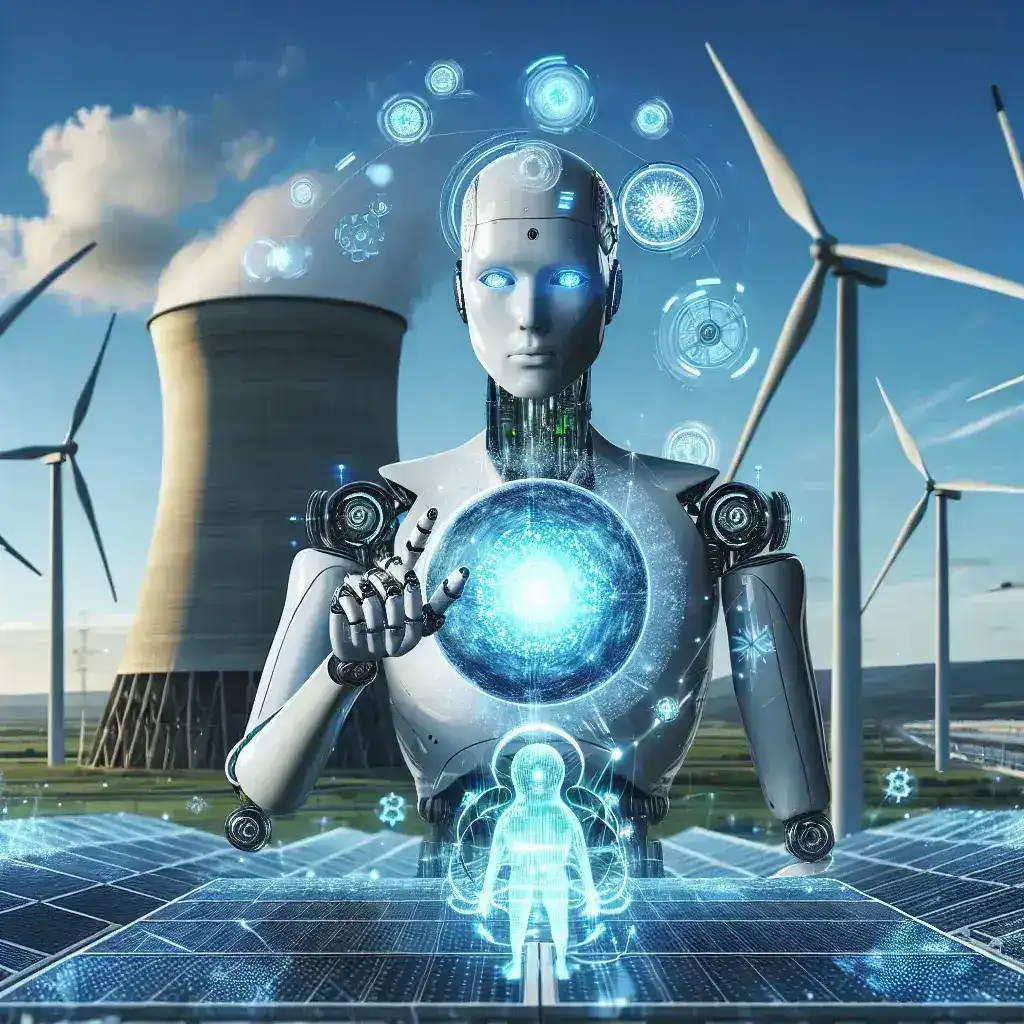Introduction
The energy sector is undergoing a profound transformation, propelled by advancements in artificial intelligence (AI). AI is revolutionizing energy production, distribution, and consumption by optimizing processes, predicting failures, and driving innovation. This article delves into the numerous ways AI is reshaping the energy industry, making it more efficient, sustainable, and resilient.
AI in Energy Consumption Optimization
One of the most transformative applications of AI in the energy sector is its ability to optimize energy consumption. Traditional methods of energy management often lack the precision and efficiency needed to meet modern demands. AI algorithms analyze vast amounts of real-time data to provide actionable insights, significantly reducing energy waste and boosting efficiency.
Smart Grids
Smart grids are a prime example of AI-driven innovation in energy management. By utilizing AI, smart grids can monitor and regulate electricity flow in real time, balancing supply and demand efficiently. This reduces energy waste, lowers operational costs, and enhances grid reliability. For instance, AI can predict peak usage periods and automatically adjust supply to meet demand, preventing blackouts and reducing stress on the system.
Demand Response Programs
AI-powered demand response programs incentivize consumers to lower their energy usage during peak times. By analyzing consumption patterns, these programs offer rewards for reduced energy usage, helping balance the load while cutting energy costs for consumers.
AI in Energy Production
AI is revolutionizing energy production across both renewable and traditional sources, enhancing efficiency and reducing environmental impact.
Renewable Energy
AI is crucial in advancing the viability of renewable energy sources such as wind, solar, and hydro. By predicting weather patterns, AI can optimize the performance of wind turbines and solar panels, maximizing energy yields. This not only increases reliability but also makes renewable energy more cost-effective and accessible.
Fossil Fuels
In the fossil fuel sector, AI is streamlining processes to minimize environmental impact. AI optimizes drilling and extraction techniques, reducing waste and lowering carbon emissions. Additionally, predictive maintenance powered by AI helps prevent equipment failures, avoiding downtime and mitigating risks of environmental hazards.
AI in Energy Distribution
Efficient energy distribution is essential for minimizing losses and ensuring energy reaches consumers effectively. AI is transforming this aspect of the energy sector as well.
Grid Management
AI-based grid management systems identify inefficiencies and bottlenecks in the energy network by analyzing data from multiple grid points. These insights enable better energy distribution and help minimize transmission losses. Advanced AI algorithms can also predict faults and reroute energy to maintain a stable supply.
Energy Storage
Energy storage systems, such as batteries, play a pivotal role in energy distribution. AI optimizes these systems by predicting when to store or release energy, ensuring a stable supply and reducing dependency on non-renewable sources.
AI in Infrastructure Management
AI is also reshaping how energy infrastructure is managed, enhancing reliability and longevity through predictive maintenance and real-time monitoring.
Predictive Maintenance
AI-driven predictive maintenance identifies potential failures in infrastructure before they occur, enabling proactive interventions. This reduces downtime, lowers repair costs, and improves the safety and reliability of energy systems.
Real-Time Monitoring
Real-time monitoring powered by AI provides instant insights into infrastructure performance, flagging issues that require immediate attention. This helps prevent failures, ensuring uninterrupted energy production and distribution.
Challenges and Future Prospects
While AI is transforming the energy sector, it faces challenges such as data privacy concerns, cybersecurity risks, and the need for substantial initial investments. However, the long-term benefits—efficiency, sustainability, and resilience—far outweigh these obstacles. As AI technology evolves, its role in shaping the energy industry will become increasingly indispensable.
Conclusion
AI is revolutionizing the energy sector by optimizing consumption, enhancing production, streamlining distribution, and improving infrastructure management. By making energy systems more efficient, sustainable, and reliable, AI is paving the way for a brighter, more sustainable future. As innovation continues, AI’s impact on the energy sector is poised to grow, unlocking unprecedented opportunities for progress and resilience.



